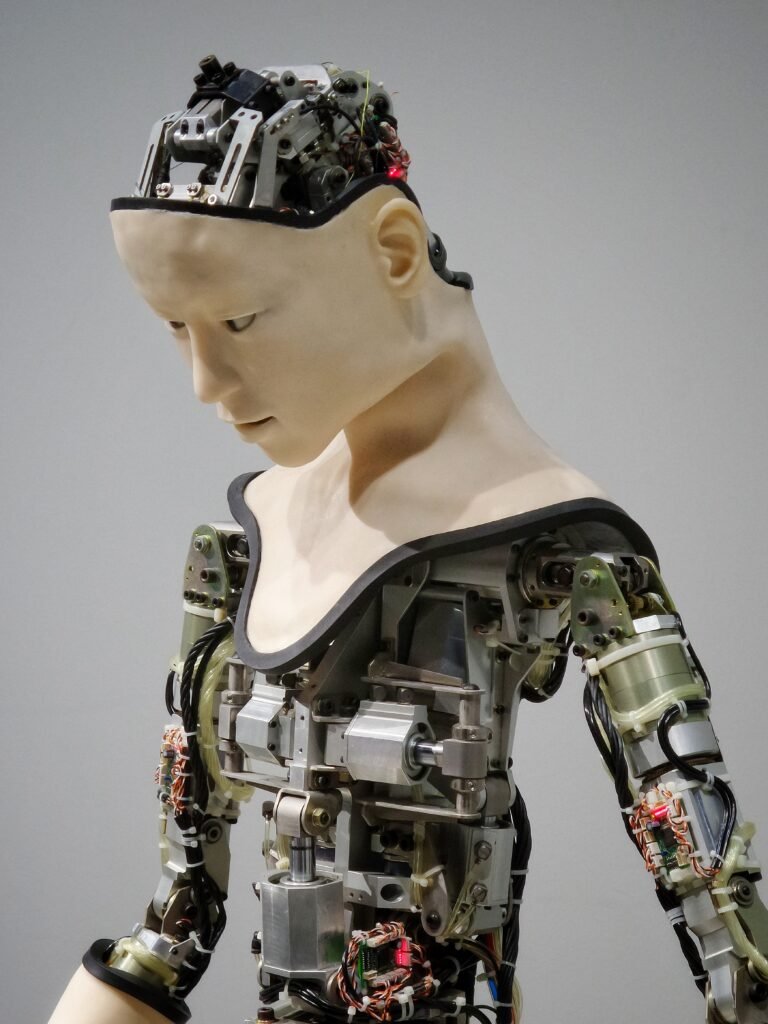The rapid growth of Artificial Intelligence (AI) has sparked both excitement and concern about its potential impact. AI has the capability to revolutionize various industries, from enhancing medical diagnosis to improving national security measures. However, there are also significant risks associated with its use, particularly in areas such as education, intellectual property, and privacy. In this article, we will explore the possibilities and perils of AI’s rapid growth, focusing on the emergence of Generative AI systems and their potential applications in different fields. We will also discuss the use of machine learning in medical diagnostics and the promises and concerns regarding facial recognition technology. To ensure the responsible use of AI systems, appropriate oversight and accountability measures are crucial. The article will highlight an AI Accountability Framework that can help mitigate risks and ensure the responsible use of AI by federal agencies and other entities.
The Promise and Perils of Artificial Intelligence’s Rapid Growth

Introduction
Artificial intelligence (AI) has gained significant attention in recent years for its potential to revolutionize various industries. The rapid growth of AI has sparked excitement and debate around its possibilities and perils. While AI holds great promise in areas such as medical diagnosis, national security, and crime-solving, there are also concerns regarding education, intellectual property, and privacy. In this article, we will explore both the promise and perils of AI’s rapid growth, as well as the areas of AI advancement, generative AI systems, machine learning, facial recognition, ensuring accountability and mitigating risks, and the potential and influence of AI.
The Promise of AI
AI has the potential to bring about significant positive changes in various fields. In the medical industry, AI-powered systems can improve medical diagnosis by analyzing vast amounts of patient data and providing more accurate and timely assessments. This can lead to faster and more effective treatment options. In the realm of national security, AI can help identify potential threats and respond quickly to protect the country. Additionally, AI can assist in solving crimes by analyzing large datasets and identifying patterns that may not be readily apparent to humans. These advancements in AI offer a promising future where technology helps us live healthier and safer lives.
Perils of AI
While the promise of AI is undeniable, there are also concerns surrounding its use. In the field of education, there are worries that AI may replace human teachers, leading to a loss of jobs and personalized learning experiences. Intellectual property issues arise when AI systems are capable of replicating the work of authors and artists, potentially raising questions about ownership and copyright. Privacy is another significant concern, especially with the use of facial recognition technology. There are fears that facial recognition systems may invade personal privacy and lead to the misidentification of individuals. It is essential to address these perils and ensure responsible and ethical use of AI.
Areas of AI Advancement
AI has made significant advancements in various areas. Generative AI systems, such as ChatGPT and Bard, have the ability to create text, images, audio, video, and other content based on user prompts. These systems have found applications in fields like education, government, law, and entertainment. However, there are concerns about potential misuse, such as replicating the work of authors, generating code for cyberattacks, or creating chemical warfare compounds. Machine learning is another area of AI advancement that is being widely used, particularly in medical diagnostics and military intelligence. By analyzing complex patterns in data, machine learning can improve disease detection and treatment. However, limitations and biases in the data used to develop AI tools can reduce their effectiveness and contribute to inequalities in healthcare. Facial recognition technology, while having the potential to identify criminals and enhance security, also raises concerns regarding inaccuracies, bias, and personal privacy.

Generative AI Systems
Generative AI systems, like ChatGPT and Bard, have gained widespread attention for their ability to create text, images, audio, and video content. These systems can be utilized in various fields, including education, government, law, and entertainment. However, there are both exciting possibilities and potential dangers associated with generative AI. On the positive side, these systems can enhance creativity, automate tasks, and improve productivity. They have the potential to assist authors and artists in their work, generate code for more effective cybersecurity, and contribute to advancements in fields like chemistry. On the other hand, there are concerns about plagiarism, unauthorized replication of copyrighted materials, and the creation of harmful and dangerous content. It is important to approach the development and use of generative AI systems responsibly to mitigate these risks.
Machine Learning
Machine learning is a vital application of AI that has seen significant growth. This technology is being used in various fields, including medical diagnostics and military intelligence. By analyzing complex patterns in data, machine learning can improve disease detection, treatment, and intelligence analysis. The benefits of machine learning include more consistent analysis of medical data and increased access to care for underserved populations. However, it is crucial to address limitations and biases in the data used to develop AI tools. Bias in machine learning algorithms can lead to disparities in healthcare and perpetuate existing inequalities. To ensure the responsible use of machine learning, it is important to continuously monitor and evaluate these systems, taking into account the impact they have on different patient populations.

Facial Recognition
Facial recognition technology has both promise and peril in its use. Law enforcement agencies, both at the federal and state levels, have embraced facial recognition technology to support criminal investigations and video surveillance. Additionally, it is used at ports of entry to match travelers with their passports. The benefits of facial recognition technology include faster identification of potential criminals and improved security measures. However, there are concerns regarding the accuracy and bias of facial recognition systems, leading to misidentification, particularly for certain demographics. Furthermore, there are debates about personal privacy and the extent to which facial recognition technology infringes upon individuals’ rights. It is necessary to strike a balance between utilizing facial recognition for security purposes and protecting personal privacy.
Ensuring Accountability and Mitigating Risks
As AI continues to rapidly expand, it is crucial to ensure accountability and mitigate the risks associated with its use. To address the complexities, risks, and societal consequences of emerging AI technologies, an AI Accountability Framework has been developed. This framework aims to provide guidance to federal agencies and other entities involved in the design, development, deployment, and monitoring of AI systems. The framework is built around four principles: governance, data, performance, and monitoring. These principles help establish structures and processes to ensure accountability and responsible AI use. By implementing such a framework, we can safeguard the effectiveness of AI technologies while protecting our data and addressing potential risks.
The Potential and Influence of AI
AI technologies hold enormous potential for positive change in various aspects of our lives. From commercial products to strategic competition among world powers, AI has the power to significantly influence our daily lives and global events. This potential stems from AI’s ability to outperform human abilities and comprehension. However, with this power comes the need for accountability. The AI Accountability Framework can help ensure that humans remain in control of AI systems, preventing them from running amok or causing harm. By harnessing the potential of AI and implementing responsible oversight, we can maximize its benefits while minimizing risks.
In conclusion, the rapid growth of AI presents both promise and perils. While AI has the potential to revolutionize industries and bring about positive changes, there are also concerns surrounding its use in areas such as education, intellectual property, and privacy. Generative AI systems, machine learning, and facial recognition are areas of AI advancement that offer exciting possibilities but also raise concerns regarding ethics, biases, and privacy. It is essential to ensure accountability and mitigate risks associated with AI through the implementation of frameworks and responsible oversight. By doing so, we can harness the potential and influence of AI while safeguarding our society and addressing potential pitfalls.



